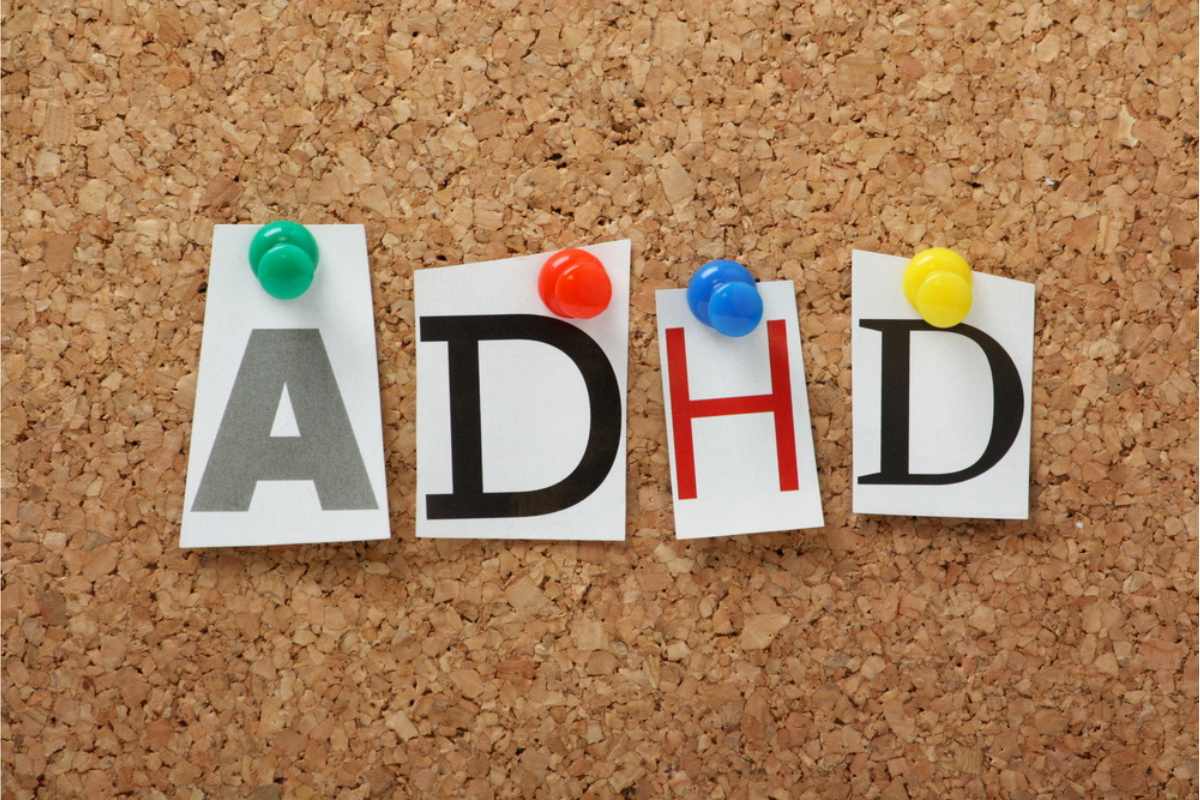July 1, 2022
How to Know If You Have ADHD
Written by Sara Lane
Posted in ADHD/Autism and with tags: ADHD, children, mental health
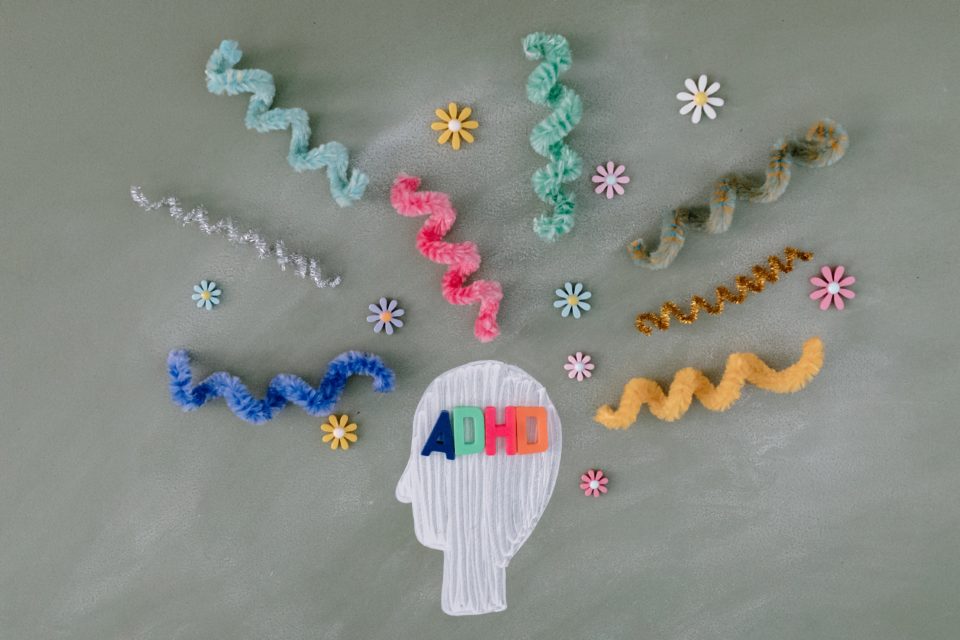
With all of the unanswered questions surrounding the diagnosis of Attention Deficit Hyperactive Disorder – otherwise known as ADHD – it may feel overwhelming knowing where to start.
Whether you’re considering ADHD as a diagnosis for yourself or a friend, the first step is to understand and define what ADHD is…and what it isn’t.
ADHD is a relatively common diagnosis affecting an estimated 6.4 million children in the United States. People with ADHD can live very normal day-to-day lives with their diagnosis. However, they face unique challenges in multiple lifestyle routines.
Symptoms of ADHD
Despite the fact that many adults and children go on to lead regular everyday lives, they may be experiencing hidden internal struggles. Common lifestyle commonalities include:
- Trouble completing tasks on time
- Chronic lifestyle stress due to worrying about the future
- Worried about living up to expectations for oneself or others
- Often feeling frustrated
- Difficulty concentrating
- Underachievement in school / academic settings
While these instances are common to many who struggle with Attention Deficit Hyperactive Disorder, the challenges of ADHD are unique to each person.
Other lifestyle factors that some people with adhd may experience include differing circadian rhythms, getting better sleep during later hours of the night/morning and overeating, whether due to seeking stimulation or a dopamine boost or out of boredom or procrastination.
Adults with ADHD may also struggle with self-esteem, feeling different from others, and possibly having experienced negative input growing up due to common ADHD symptoms.

Am I Just Lazy?
Combined with the day-to-day pressures of life, ADHD can change how someone approaches these challenges. As these overdue responsibilities, late bills, and frustrating arguments with spouses pile up, it may feel like a lack of self-motivation is to blame. But there is more to the story.
Someone who struggles with ADHD not only experiences difficulty concentrating, but their diagnosis may also impact their ability to focus on one task at a time.
It might feel as though the mountain of responsibilities can fall directly on your shoulders. However, it is essential to remind yourself to have compassion. ADHD can make normal tasks even harder, despite the importance of the task at hand.
ADHD Diagnosis & Treatment
What is important is to remember that the difficulties faced by those who have ADHD are universal – you are not alone.
A common misconception is that ADHD is only experienced by children. However, this is not the case. ADHD can be a lifelong diagnosis that lasts well into adulthood.
Childhood Signs of ADHD
Many aspects of ADHD show up early on in adolescence:
- Difficulty staying organized and on task
- Restlessness or fidgeting
- Lack of self-control
- Abundance of hyperactivity and impulsive behaviors
- Trouble focusing
- Short attention span
- Squirming, not sitting still
- Feeling the need to get up and be active / not able to sit for long periods of time
- Excess talking or interruptions
- Differences in eating habits
All of these attributes are learned at a young age. As children enter daycare, kindergarten, and other school-like settings, they are required to contain their high energy. As a result, ADHD may look more obviously present in school-age children.
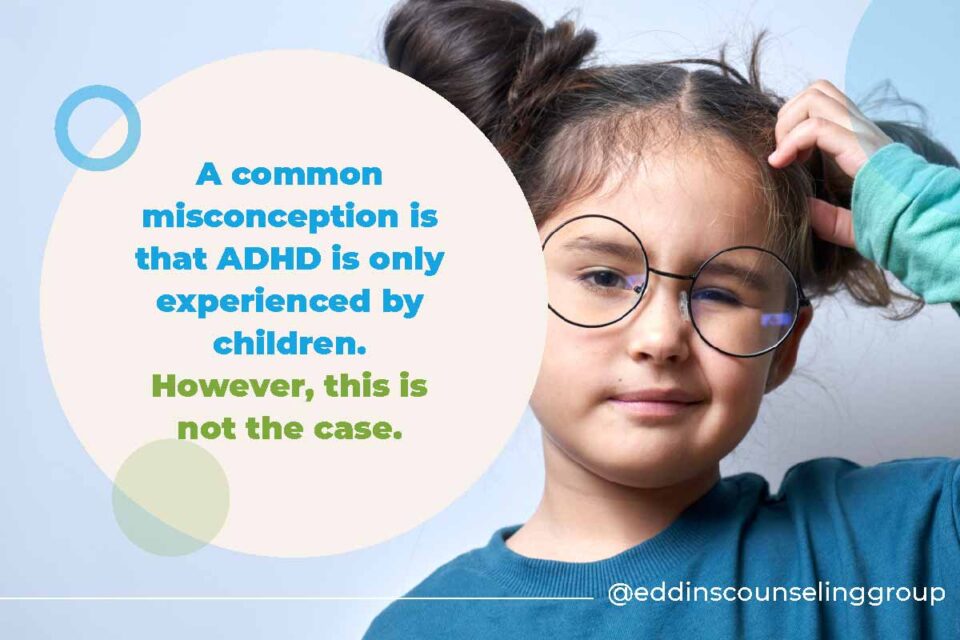
ADHD in Teens
As a parent or teen, you may question how to know if you have ADHD symptoms in yourself or your child. While some aspects of attention deficit hyperactive disorder become less intense over time, ADHD can still make a big difference in day-to-day life.
Research shows common shared experiences amongst teens with ADHD include:
- Trouble focusing in school or work
- Making a lot of mistakes
- Not paying attention to tasks at hand
- Difficulty finishing assignments or household chores
- Experiencing prolonged periods of frustration
- Emotional sensitivity
- Difficulty engaging in / avoidance of social and family activities
- Parental-teen conflict due to symptoms of ADHD
- Signs of ADHD negatively affecting home life
- Frequently losing or forgetting personal items
- Poor time management/task prioritization
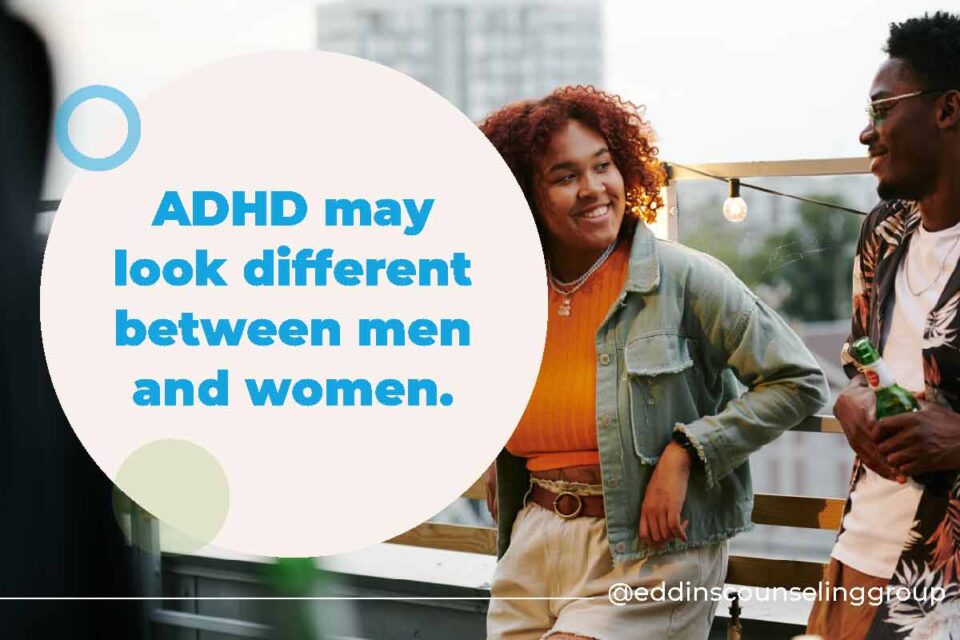
ADHD in Adulthood
Similar adolescents, adults with ADHD may experience difficulty prioritizing important tasks and focusing on the work in front of them. Whether in their career, college, or home life, ADHD can pose a challenge in many ways. As an adult, you may experience:
- Inability to multitask
- Mood swings
- Chronic stress/difficulty coping with stressors
- Prolonged frustration
- Poor planning
- Difficulty managing time
- Impulsivity
- Problems with organization
- Inability to focus on the task at hand
- Underachievement in college coursework/career
Moreover, evidence suggests that ADHD may look different between men and women. As a result, girls are less likely to receive an ADHD diagnosis despite showing symptoms.
This, however, does not mean that ADHD is contained only to childhood.
While it may be easier to spot signs of Attention Deficit Hyperactive Disorder in children, it is likely to be a chronic condition even into adulthood. Experts in one study report that as much as 60% of children with ADHD grew up to experience those symptoms as adults.
Symptoms may look different during the various developmental stages, the underlying cause is the same. It’s not a lack of applying oneself or being lazy – it’s simply a diagnosis. And the best news is: it’s treatable.
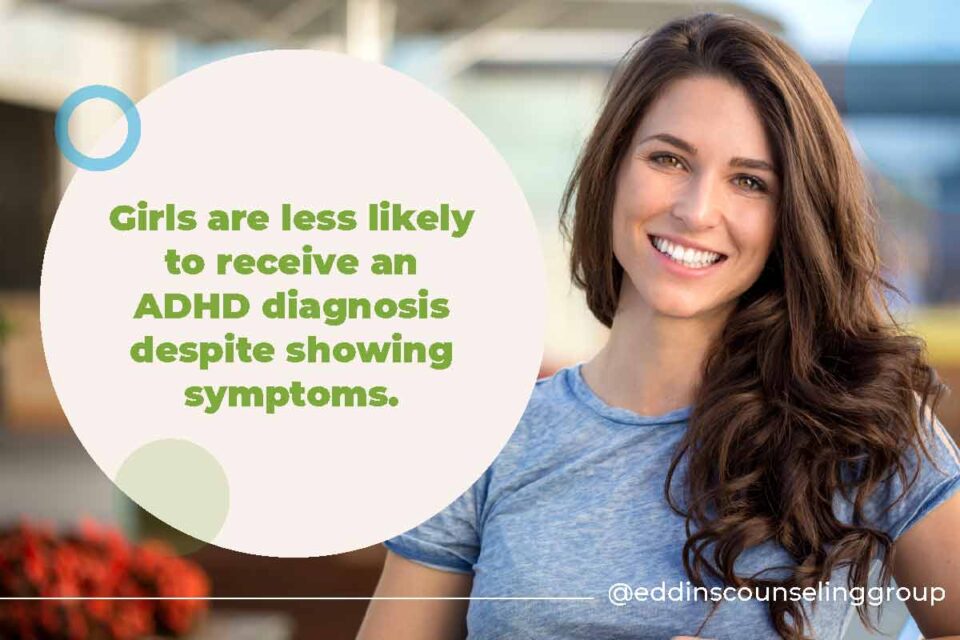
Diagnosing ADHD in Adults & Children
Do these symptoms sound familiar? If so, it may be Attention Deficit Hyperactive Disorder (ADHD). If you’re looking for answers, the next step is to complete your own screening to know if you have ADHD.
It is important to note that a health expert is the only qualified person to diagnose ADHD. If you suspect ADHD, it is important to make an appointment with your counselor to determine what your next steps are.
What to Expect in an Initial ADHD Appointment
You may be asking yourself what to expect at an ADHD screening appointment. Here are some basics of what an intake could look like:
- An examiner, such as a counselor, will ask you various questions related to your work, life, and childhood (such as eg. “How active were you as a child?” or “Do you have any problems at work or school?”). These questions help your expert get a snapshot of your experience and any potential ADHD markers that are present.
- You may experience nervousness or stress related to your first appointment. Remember, that’s normal. It’s ok to feel intense emotions about any part of the screening process.
- Your health expert may choose to use a screening tool to assess your ADHD symptoms. If your health expert believes that ADHD may be your diagnosis, they will likely talk you through what your next steps are.
More information on the diagnostic criteria for diagnosing ADHD can be found in the DSM-V handbook. It is important to remember that an ADHD diagnosis does not impact your daily life. Rather, it is meant to explain behaviors that you may be seeing in your own life.
ADHD diagnosing is not something to avoid. In fact, it may give you options to treat and manage the symptoms you experience.
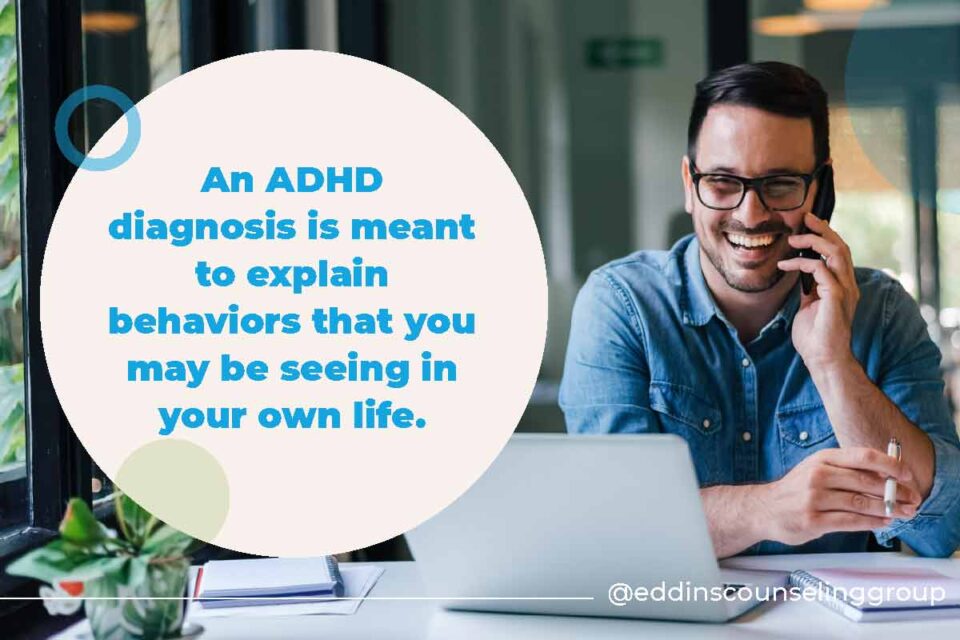
ADHD Treatment Options
ADHD can be managed in multiple ways, including medication. Some choose to manage the emotional and life stress caused by the symptoms of ADHD with therapy.
This can be an excellent opportunity to speak to a professional about the ways ADHD has affected your life and to find resources to make these symptoms manageable. Therapy may not solve every issue regarding ADHD, but it can give you the tools you need for the journey.
If you’re fighting a dragon, you’ll want to have a sword. Talking to a Houston, Montrose, or Sugar Land therapist about these symptoms can give you the resources you need to fight back against ADHD and improve your quality of life!

Online resources abound for those seeking help managing ADHD.
Overall, it is important to give yourself space to process ADHD. Whether that’s through your own research or by seeking expert care and assessments, it is necessary to allow yourself the opportunity to feel what you feel post-assessment.
Whether you’re lamenting a diagnosis or relieved to have an answer for your behaviors, know that your feelings are valid. To speak with a professional about whether you may have ADHD, Eddins Counseling Group is here for you!
Grounding & Self Soothing
Get instant access to your free ebook.


